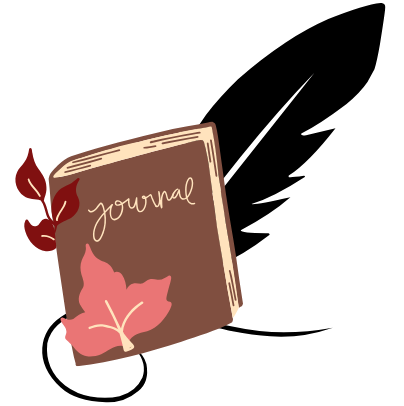As a lifelong book lover, I’ve always been captivated by the stories of writers who uncovered their literary voice later in life.
There’s something profoundly inspiring about people who pursue their passion for writing after decades of living, working, and accumulating rich life experiences.
These late bloomers prove that creative success isn’t limited to the young – it’s never too late to start a writing career.
The Rise of the Late-Blooming Author
The phenomenon of late-blooming writers is far more common than many people realize. A 2018 survey by the Authors Guild revealed that the median age of published authors is 51.
This statistic suggests that many writers don’t hit their stride until well into their middle years or beyond.
It’s a trend that’s gaining more attention in recent years, as the publishing industry slowly begins to recognize the value of diverse voices and life experiences.
But what exactly defines a late-blooming writer? Generally, we’re talking about authors who publish their first significant work after the age of 40.
These writers often bring a depth and richness to their work that can only come from decades of living, observing, and reflecting on the human condition.
They’ve had careers, raised families, traveled, and experienced both triumphs and setbacks. All of these experiences tell their writing, lending it a maturity and nuance that’s hard to replicate.
Inspiring Success Stories
Frank McCourt: From Teacher to Pulitzer Prize Winner
Frank McCourt spent most of his life as a high school English teacher in New York City. It wasn’t until he retired at the age of 66 that he wrote his Pulitzer Prize-winning memoir, “Angela’s Ashes.” The book’s raw honesty and vivid portrayal of his impoverished Irish childhood captivated readers worldwide.
McCourt’s late-in-life success is a testament to the power of patience and perseverance in pursuing literary dreams.
Laura Ingalls Wilder: Frontier Girl to Beloved Author
Laura Ingalls Wilder didn’t publish her first book, “Little House in the Big Woods,” until she was 65 years old. This book, based on her childhood experiences on the American frontier, launched a beloved series that has enchanted generations of readers.
Wilder’s success shows that the stories we carry with us throughout our lives can find their moment to shine, even in our golden years.
Raymond Chandler: From Oil Executive to Noir Master
Raymond Chandler didn’t publish his first novel, “The Big Sleep,” until he was 51. After losing his job as an oil company executive during the Great Depression, Chandler turned to writing pulp fiction to make ends meet.
His hard-boiled detective novels featuring Philip Marlowe became classics of the noir genre, influencing countless writers and filmmakers.
Mary Wesley: A Late-Life Literary Sensation
British author Mary Wesley published her first adult novel at the age of 71. Her books, often featuring unconventional older women and exploring themes of love and sexuality, became bestsellers.
Wesley went on to publish ten novels in twelve years, proving that creative productivity can flourish at any age.
The Science Behind Late-Blooming Creativity
These success stories challenge the persistent myth that creativity peaks in youth. In fact, scientific research supports the idea that creative output often follows a different trajectory.
A 2016 study from Ohio State University found that the average age at which Nobel Prize-winning writers produced their most notable work was 45.
This aligns with psychologist Dean Keith Simonton’s research, which shows that creative output often follows an inverted U-shaped curve, with peak productivity occurring in mid-life. Simonton’s work suggests that while some fields may favor youthful innovation, others – including literature – benefit from the accumulation of life experience and expertise.
Advantages of Late-Blooming Writers
A Wealth of Life Experience
Late-blooming writers have a large reservoir of life experience to draw from. This translates into more nuanced characters, complex plot lines, and deeper insights into the human condition.
Older writers often have a better understanding of themselves and the world around them, which can lead to more authentic and resonant storytelling.
Urgency and Dedication
Late-blooming writers often approach their craft with a sense of urgency and dedication that younger writers might lack. They’ve lived long enough to know that time is precious, and they’re determined to make the most of their creative years.
This focus and determination can be a powerful driving force in producing high-quality work.
Financial Stability
Many late-blooming writers have had successful careers in other fields, providing them with the financial cushion to pursue writing without immediate pressure to earn a living from it. This freedom can allow for more experimentation and risk-taking in their work.
Emotional Maturity
With age comes emotional maturity and a deeper understanding of human nature. Late-blooming writers often bring a level of psychological insight to their characters and stories that can be harder to achieve for younger authors.
Established Networks
Older writers often have extensive personal and professional networks built up over decades. These connections can be invaluable when it comes to research, finding mentors, or even securing publishing deals.
Challenges Faced by Late-Blooming Writers
Ageism in the Publishing Industry
Ageism in the publishing industry can be a significant hurdle. There’s often a bias towards younger authors, particularly when it comes to debut novels.
Late bloomers may find themselves competing with writers half their age for attention from agents and publishers.
Technological Barriers
Technological barriers can be daunting for older writers. The modern publishing landscape needs authors to be savvy with social media, digital marketing, and various writing and editing software.
While these skills can be learned at any age, they may present a steeper learning curve for those who didn’t grow up in the digital age.
Balancing Writing with Life Responsibilities
Balancing writing with other life responsibilities can be another challenge. Many late-blooming writers are juggling their creative pursuits with family obligations, health issues, or other late-life commitments.
This balancing act needs careful time management and a strong commitment to carving out space for writing.
Self-Doubt and Imposter Syndrome
Late-blooming writers may grapple with self-doubt and imposter syndrome, feeling that they’ve missed their chance or that they don’t belong in the literary world. Overcoming these psychological barriers can be a significant part of the process.
Opportunities in the Digital Age
Despite these challenges, the rise of self-publishing and digital platforms has created new opportunities for late-blooming writers. These avenues allow authors to bypass traditional gatekeepers and connect directly with readers.
Many late bloomers have found success by embracing these new technologies and using them to their advantage.
Self-Publishing Platforms
Platforms like Amazon’s Kindle Direct Publishing, IngramSpark, and Draft2Digital have democratized the publishing process. Late-blooming writers can now publish their work without needing to secure a traditional publishing deal.
Online Writing Communities
Online writing communities like Wattpad, Scribophile, and Writing.com provide spaces for writers to share their work, receive feedback, and connect with other authors. These platforms can be particularly valuable for late-blooming writers looking to build their skills and find support.
Digital Marketing Tools
While the digital landscape can be challenging to navigate, it also offers powerful tools for book marketing. Late-blooming writers can leverage social media, email marketing, and online advertising to reach their target audience directly.
Practical Steps for Late-Blooming Writers
If you’re considering embarking on a writing career later in life, here are some practical steps to get started:
Embrace Your Life Experience
Your unique perspective is your strength. Don’t try to write like a younger version of yourself.
Instead, draw on your wealth of experiences, insights, and observations to create rich, authentic stories.
Develop a Consistent Writing Habit
Set aside regular time for writing, even if it’s just an hour a day. Consistency is key to developing your skills and completing projects.
Treat your writing time as sacred and protect it fiercely.
Join Writing Groups or Workshops
Connecting with other writers can provide support, feedback, and motivation. Look for local writing groups or join online communities.
Workshops and critique groups can help you improve your craft and build relationships with fellow writers.
Read Widely in Your Chosen Genre
Familiarize yourself with current trends and styles in the type of writing you want to pursue. Reading extensively in your genre will help you understand market expectations and find your unique voice within that context.
Consider Taking Writing Courses
Many universities and online platforms offer courses specifically designed for mature students. These can help you hone your skills, learn about the publishing industry, and connect with other aspiring writers.
Start a Blog or Contribute to Online Publications
Building an online presence can help you find your voice, build an audience, and hone your skills. Consider starting a blog on a topic you’re passionate about or contributing articles to online publications in your area of expertise.
Embrace New Technologies
Don’t be afraid to learn about social media, blogging platforms, and self-publishing options. While the learning curve might be steep, these tools can be invaluable for modern writers.
Seek Out Mentors
Look for experienced writers or industry professionals who can offer guidance and support. Many established authors are happy to mentor newcomers, especially those who bring unique life experiences to their writing.
Attend Literary Events and Conferences
Literary festivals, book fairs, and writing conferences can be great places to network, learn about the industry, and find inspiration. Many of these events now offer online options, making them more accessible than ever.
Be Patient and Persistent
Remember that writing is a craft that takes time to master. Be patient with yourself and persistent in your efforts.
Every word you write is a step forward in your development as an author.
The Value of Late-Blooming Voices
The success of late-blooming writers serves as a powerful reminder that creativity knows no age limit. These authors bring a unique perspective to literature, one that’s informed by decades of life experience.
Their stories often resonate deeply with readers who are hungry for authentic, mature voices.
Late-blooming writers also play a crucial role in expanding the diversity of voices in literature. They challenge ageist stereotypes and prove that creative pursuits can be lifelong endeavors.
By sharing their stories, they inspire others to pursue their passions, regardless of age.
Embracing Your Literary Journey
Whether you’re 40, 60, or 80, it’s never too late to pick up the pen and start your literary journey. Your best chapters may still be waiting to be written.
As the poet Mary Oliver once said, “The most regretful people on earth are those who felt the call to creative work, who felt their own creative power restive and uprising, and gave to it neither power nor time.”
So, if you’ve always dreamed of becoming a writer, don’t let age hold you back. Your unique voice and perspective are valuable, and the world is waiting to hear your stories.
Embrace your life experiences, commit to your craft, and take that first step on your writing journey.
The literary world will be richer for your contribution.
Key Takeaways
- Many successful authors don’t start their writing careers until after 40.
- Life experience can be a significant asset for late-blooming writers.
- Challenges like ageism and technology can be overcome with determination and learning.
- The publishing industry is slowly recognizing the value of diverse voices and life experiences.
- It’s never too late to start writing and sharing your unique perspective with the world.
- Consistency, patience, and persistence are key to developing as a writer at any age.
- The digital age offers new opportunities for late-blooming writers to publish and market their work.
- Late-blooming writers play a crucial role in expanding the diversity of voices in literature.
Frequently Asked Questions
What age is considered a late-blooming writer?
Generally, a late-blooming writer is someone who publishes their first significant work after the age of 40. However, this definition can vary, and some consider late bloomers to be those who start writing seriously in their 30s or even 50s.
Can I start a writing career in my 50s or 60s?
Absolutely! Many successful authors didn’t begin their writing careers until their 50s, 60s, or even later.
Your life experiences can be a valuable asset in creating rich, compelling stories.
Do publishers discriminate against older writers?
While ageism can exist in the publishing industry, many publishers are increasingly recognizing the value of diverse voices, including those of older writers. Your work’s quality and marketability are typically more important than your age.
How can I improve my writing skills as an older adult?
You can improve your writing skills at any age through consistent practice, reading widely, taking writing courses, joining writing groups, and seeking feedback on your work.
Are there writing courses specifically for older adults?
Yes, many universities and online platforms offer writing courses designed for mature students. These courses often focus on life writing, memoir, or fiction writing for adults.
How can I balance writing with other life responsibilities?
Balancing writing with other commitments needs careful time management. Set aside dedicated writing time, even if it’s just an hour a day, and treat it as a priority.
Consider discussing your writing goals with family members to gain their support.
Is self-publishing a good option for late-blooming writers?
Self-publishing can be an excellent option for late-blooming writers. It allows you to maintain control over your work and potentially reach readers more quickly than traditional publishing.
However, it also needs you to handle marketing and promotion yourself.
How important is social media for older writers?
While social media can be a powerful tool for book promotion and connecting with readers, it’s not absolutely essential. Many successful authors, particularly in certain genres, have built careers with minimal social media presence.
Focus on the platforms you’re comfortable with and that align with your target audience.
Can late-blooming writers compete with younger authors?
Absolutely. Late-blooming writers often bring depth, maturity, and unique perspectives to their work that can set them apart from younger authors.
Many readers appreciate the life experience and wisdom that older writers can offer.
What genres are particularly suited to late-blooming writers?
While late-blooming writers can succeed in any genre, some particularly well-suited genres include literary fiction, historical fiction, memoir, and non-fiction books that draw on professional or life experiences.




